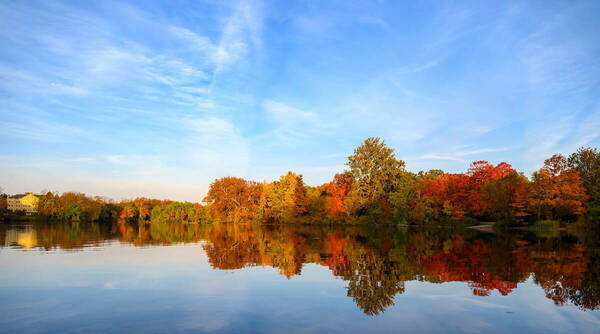
At the 27th Conference of the Parties (COP27), hosted this month by the United Nations Framework Convention on Climate Change (UNFCCC), world leaders plan to “demonstrate a new era of implementation by turning their commitments under the Paris Agreement into action” to reduce greenhouse gas emissions and improve global adaptation and mitigation efforts through enhanced funding.
But a UNFCCC report released ahead of the conference showed that while participating nations made some progress in reducing emissions — in the hope of limiting warming to 1.5 degrees Celsius by the end of the century — the world remains well behind this goal.
The consequences of inadequate action — catastrophic storms, flooding, wildfires and widespread drought — leave populations to face an uncertain future from coastlines to the corn belt, in densely populated cities and developing nations.
At the University of Notre Dame, climate change researchers and their students are bringing real-world solutions to communities worldwide, providing perspective on policy issues and encouraging shifts in human behavior to face that uncertainty with resilience.
“The bridge between knowledge and action is vital and requires community-engaged research, and sincere and respectful partnerships,” said Jennifer Tank, the Ludmilla F., Stephen J., and Robert T. Galla Professor of Biological Sciences and director of the Notre Dame Environmental Change Initiative. “Notre Dame is uniquely poised to do more in the world in that regard because this kind of thinking is nurtured here.”
Building resilient farmlands in the Midwest
Collaborating with Indiana University, researchers at Notre Dame seek to gain a deeper understanding of how cover crops impact carbon, nutrient, water and energy cycles; address knowledge gaps; and identify the social and environmental factors that determine the climate mitigation and adaptation potential of cover crops for Midwestern U.S. croplands.
Designing climate-resilient cities in at-risk communities
Notre Dame joins a multi-institutional team advancing urban climate science as part of Argonne National Laboratory’s recently established Urban Integrated Field Laboratory in Chicago. The Community Research on Climate and Urban Science (CROCUS) laboratory will focus specifically on how climate change affects urban areas at local and regional levels to inform adaptation efforts and build more resilient cities.
Confronting a moral hazard along America’s coastlines
Research by Debra Javeline, associate professor of political science shows insurance companies play a pivotal role in how homeowners perceive risk and could be doing far more to encourage action to minimize losses.
Originally published by at news.nd.edu on November 01, 2022.